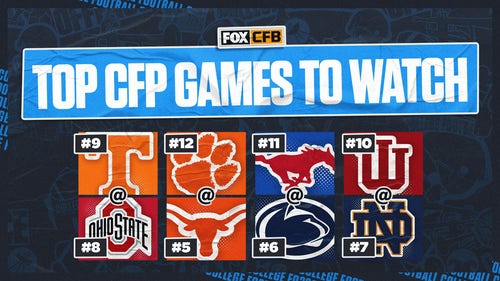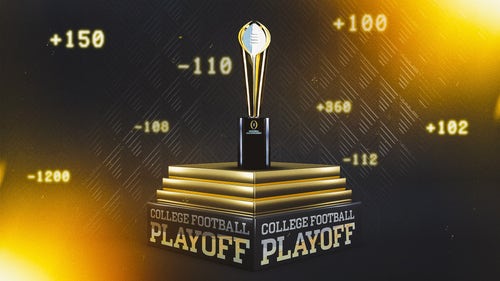
Correction: Penn State-Abuse story
HARRISBURG, Pa. (AP) In some versions of a March 24 story about the criminal conviction of former Penn State University president Graham Spanier, The Associated Press erroneously reported the length of retired assistant football coach Jerry Sandusky's sentence. It was for 30 to 60 years, not 10 to 30 years.
A corrected version of the story is below:
Ex-Penn State president convicted over child-sex scandal
Former Penn State President Graham Spanier has been convicted of hushing up child sexual abuse allegations in 2001 against Jerry Sandusky
By MARK SCOLFORO
Associated Press
HARRISBURG, Pa. (AP) - Former Penn State President Graham Spanier was convicted Friday of hushing up child sexual abuse allegations in 2001 against Jerry Sandusky, whose arrest a decade later blew up into a major scandal for the university and led to the firing of beloved football coach Joe Paterno.
The jury found Spanier guilty of one misdemeanor count of child endangerment over his handling of a complaint against the retired assistant football coach but acquitted him of conspiracy and a second child endangerment count.
Spanier, 68, showed no emotion when the verdict was read after 13 hours of deliberations. He could get up to five years in prison. His lawyer said he will appeal.
The trial centered on how Spanier and two other university administrators handled a complaint by graduate coaching assistant Mike McQueary, who said he reported seeing Sandusky sexually molesting a boy in a team shower in 2001. The three officials told Sandusky he could not bring children onto the campus anymore but did not report the matter to police or child welfare authorities.
Sandusky was not arrested until 2011, after an anonymous tip led prosecutors to investigate the shower incident. He was convicted the next year of sexually abusing 10 boys and is serving 30 to 60 years behind bars, but he maintains his innocence and is appealing. At least four accusers at Sandusky's trial said they were molested after 2001.
''Evil in the form of Jerry Sandusky was allowed to run wild,'' prosecutor Patrick Schulte told the jury.
The scandal sent shockwaves through Penn State. It led to the ousters of Spanier and Paterno and resulted in the university paying out more than $90 million to settle claims by more than 30 Sandusky accusers. In addition, the NCAA fined Penn State $48 million and briefly erased more than 100 of Paterno's football victories from the record books.
The Hall of Fame coach was never charged with a crime. He died of cancer in 2012 at age 85.
Another prosecutor, Laura Ditka, said Spanier was ''convicted for all the children who came to Penn State after what Mike McQueary saw that night.''
Two of Spanier's former lieutenants, athletic director Tim Curley and vice president Gary Schultz, pleaded guilty to misdemeanor child endangerment charges and testified against him. But all three denied they were told the encounter in the shower was sexual in nature.
''The verdict, their words and pleas indicate a profound failure of leadership,'' Penn State said in a statement. ''And while we cannot undo the past, we have re-dedicated ourselves and our university to act always with the highest integrity, in affirming the shared values of our community.''
The prosecution's key evidence included notes and email exchanges in which the three debated what to do after McQueary's report.
Spanier approved a plan to tell the retired coach to stop bringing children to athletic facilities and to inform The Second Mile, a charity for at-risk youth that Sandusky founded.
The administrators planned to inform the state Department of Public Welfare. Instead, Spanier approved putting that on hold, and the agency was never contacted. That decision formed the heart of the case against him.
''The only downside for us is if the message isn't `heard' and acted upon, and we then become vulnerable for not having reported it,'' Spanier told Curley and Schultz in 2001 in the email exchange. He called the plan ''humane and a reasonable way to proceed.''
Spanier's attorney, Sam Silver, said the case involved judgment calls by the administrators. He said there was no evidence of a crime by Spanier.
Ditka said during closing arguments that the three university leaders wanted to protect the university's reputation at the expense of children.
''They took a gamble,'' she told the jury. ''They weren't playing with dice. They were playing with kids.''
A report commissioned by the university and conducted by former FBI Director Louis Freeh concluded that Paterno and the three others hushed up the allegations against Sandusky for fear of bad publicity.
Freeh released a statement Friday night blasting the men and saying he was ''very saddened once again for the many victims.''
''Graham Spanier, Gary Schultz and Timothy Curley were the most powerful men who ran the Pennsylvania State University. Today, they are convicted criminals,'' he wrote. ''And Joe Paterno's once iconic legacy is forever marred by his own decision to do nothing when he had the chance to make a real difference.''
He said the conviction confirms and verifies the findings of his report. He also called for current Penn State President Eric Barron and several board members to step down, saying they are ''more concerned about bringing back a bronze statue than worrying about the multiple child victims who have forever been so grievously harmed.'' He apparently was referring to a statue of Paterno that was removed in 2012.










